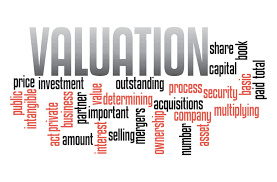
Business Valuation Online
All businesses are unique. Even businesses in the same industry or the same franchise will be different in some way to all the other similar businesses. Unless a business valuation takes into account these differences in a transparent, concise and understandable valuation, it is unlikely that the business valuation will be accurate or quantifiable.
An online business valuation from BRV is not automatically generated. Each and every report is compiled using skills and experience gained over several decades of business valuations, coupled with qualifications in accounting, finance, forensic accounting and intellectual property valuation.
Business valuation is a complex process, and many factors come into the analysis of the true value of a business, or business interest. How to value a business involves comparing several different approaches and selecting the best method based on the analyst’s knowledge and experience. Expert, specialist advice is needed.
Business Reports & Values provide expert business valuation reports for Family Law matters, Professional Practices, Litigation Support, Tribunal and Mediation proceedings. We are highly experienced in presenting expert evidence before court and bring a broad base of business experience and a diverse skill set to examine the financial affairs of the parties and establish the facts.
There are three primary approaches used for business valuation. These approaches are the:
- Income Approach – This is an approach based on the normalized earnings of the business, with all discretionary, non-operating, and non-recurring expenses (or extraordinary revenues) removed. A normalised level of earnings is developed as well as an appropriate capitalisation rate which is a rate of return anticipated by an investor based on the risk of the business. A value is determined by dividing the normalised after- tax earnings by the capitalization rate. (This is a one-year model; there is also a multi-year model called discounted cash flow analysis).
- Market Approach – The valuer will look to find similar type businesses, in the same industry, which have sold recently or in the past few years. The valuer uses pertinent criteria to find comparable transactions. There are various databases that a valuer can use to find comparable transactions. Typically, market multiples from the transactions are developed and then applied to the subject business being valued.
- Asset Approach – The valuer will review the tangible assets and any liabilities of the business and adjust to reflect the fair market values of the net tangible assets. The valuer will also consider the intangible assets of the business. These intangible assets are included in the valuation, and often categorised as goodwill. The value of goodwill is added to the net tangible assets to develop a value conclusion for the business.
As Business Valuation Experts our skill and understanding in a combination of family law, financial, business, insolvency and court matters over a period of over 30 years allows us to evaluate different circumstances and present our findings in a clear and concise manner for valuations, prosecution cases and litigation support.
In addition to providing business valuations, we also provide intellectual property valuations and providing impairment of goodwill reports for disclosing entities. Lee Goldstein from BRV is frequently instructed as an expert witnesses or adviser for quantification of damages for dispute resolution in legal matters. This often draws on his expertise in valuing brands, valuing businesses, IP valuation, valuing intangible assets, copyright valuation, patent valuation, valuing software, technology valuation and valuing other ownership interests.
If you require a business valuation, call 1800 566 872 and discover what amazing value a business valuation from BRV really is.
